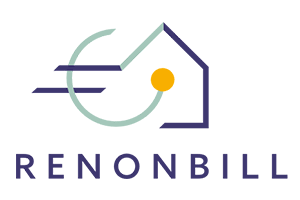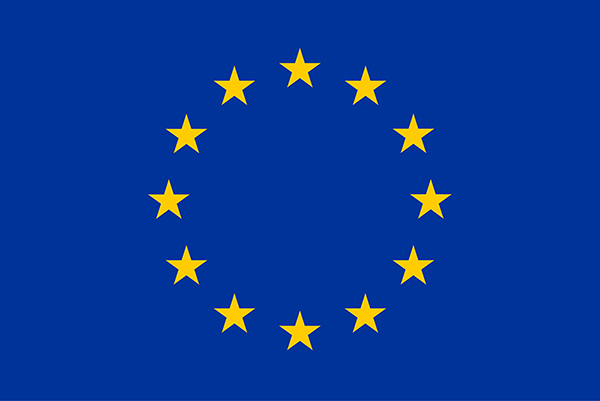
Context:
In order to achieve the European Commission’s long-term energy vision for 2050, it is necessary to dramatically increase the yearly buildings renovation rate, i.e. from the current 0.4%–1.2% (depending on the country) to at least 2.3%. Deep retrofits, leading to over 60% of primary energy savings, will thus be critical, but, as they can be expensive, new and innovative ways of financing them are vital.
On-bill schemes represent a key innovative way of financing energy efficiency. The Horizon 2020 project RenOnBill promotes their development and implementation in Europe, to scale up investments towards deep energy renovations of residential buildings.
RenOnBill’s assumption is that on-bill schemes can be proficiently implemented only if there is a close cooperation between energy utilities and financial institutions. Energy utilities have the technical capabilities and information necessary to conduct a thorough evaluation of individual projects. In order to obtain financing, utilities can bundle similar projects to achieve scale, and make small energy renovation projects in the residential buildings sector attractive to investors.
Financial institutions, on the other hand, thanks to the cooperation with the utilities, can overcome issues such as project fragmentation and perceived risk, becoming more active in energy efficiency financing and ultimately expanding their reach of the residential building renovation sector.
On-bill Schemes:
On-bill schemes are a method of financing energy renovation investments that draws on utility bills as repayment vehicle. With lower default rates, on-bill schemes offer a relative low risk opportunity for investors.
On-bill schemes bring the upfront costs of energy efficiency upgrades down to zero by simply adding a periodical line item to a customer’s utility bill as the repayment vehicle. This means that the upfront cost for energy improvements are paid by the utilities (or by the financial institutions involved, through the utilities), and paid back by the customer over time through the utility bill. During the payback period, the energy savings can offset the line item added, allowing the bill to remain unchanged. After the complete repayment of the energy efficiency improvements, the bill will be lower.
On-bill schemes have been in use for more than 30 years and are especially widespread in the USA and Canada, where they significantly drive the building renovation market. In Europe, few attempts have been made, but the potential for on-bill schemes is still unexploited.
Objectives:
RenOnBill’s overall objective is to scale up investments towards deep energy renovations of residential buildings by promoting the development and implementation of on-bill schemes, based on the cooperation between energy utilities and financial institutions. In particular, the project will:
- Analyse and define the residential building market context to enable replication of suitable OBS across Europe;
- Engage key stakeholders through national stakeholder platforms;
- Develop tools to address the residential sector’s energy renovation financing demand and assess and bundle investments based on a transparent methodology;
- Develop and implement business models in the three RenOnBill partner utilities through the development of pilot on-bill schemes;
- Utilise RenOnBill takeaway messages and the insights gained to support and disseminate EU-wide knowledge on OBS.
These objectives correspond to the five pillars of RenOnBill, which in turn constitute the methodology of the project.
Scope:
The RenOnBill project is implemented in four focus countries, namely Germany, Italy, Lithuania, and Spain. This geographic scope allows capturing the differences that can be encountered when replicating on-bill schemes within the EU, such as climatic conditions, regulatory frameworks and the availability of energy renovation support measures.
Results:
- National stakeholder platforms in the four focus countries involving a multitude of stakeholders, namely energy utilities, financial institutions, energy equipment and service companies, homeowners and tenants and policy makers.
- Pilot on-bill schemes enabling RenOnBill utilities to set up market-ready building renovation solutions by testing them with their residential customer base.
- National roadmaps to propose a set of policy, regulatory and market improvement measures.
- Highly standardised and innovative on-bill schemes and tools representing a valuable business opportunity for European utilities and other actors, potentially unlocking a substantial pipeline of energy efficiency investments and reaching a large number of customers.
- A substantial contribution to reach the European Union’s energy and CO2 targets.
Call: H2020-LC-SC3-EE-2018
Overall budget: 1 661 872,50 EUR (LEI part: 81 125 EUR)
Coordinator: CREARA CONSULTORES SL, Spain
Partners:
- UNIVERSITA DEGLI STUDI DI GENOVA, Italy
- LIETUVOS ENERGETIKOS INSTITUTAS, Lithuania
- EPTA PRIME S.R.L, Italy
- ADELPHI RESEARCH GEMEINNUTZIGE GMBH, Germany
- BUILDINGS PERFORMANCE INSTITUTE EUROPE ASBL, Belgium
- FENIE ENERGIA SA, Spain
- KAUNO ENERGIJA AB, Lithuania
- BLUENERGY GROUP SPA, Italy
 This project has received funding from the European Union’s Horizon 2020 research and innovation programme under grant agreement No #847056.
This project has received funding from the European Union’s Horizon 2020 research and innovation programme under grant agreement No #847056.
Project Team
| Name, surname | Office | phone. | |
|---|---|---|---|
|
LEI Representative |
|||
| Rolandas Urbonas | 406-AK | +37037401832 | Rolandas.Urbonas@lei.lt |
|
Project Team |
|||
| Rimantas Bakas | 210-LK | +37037401930 | Rimantas.Bakas@lei.lt |
| Ramūnas Gatautis | 307-AK | +37037401949 | Ramunas.Gatautis@lei.lt |
| Ričardas Krikštolaitis | |||
| Linas Martišauskas | 316-AK | +37037401938 | Linas.Martisauskas@lei.lt |
| Aušra Pažėraitė | 306-AK | +37037401953 | Ausra.Pazeraite@lei.lt |





